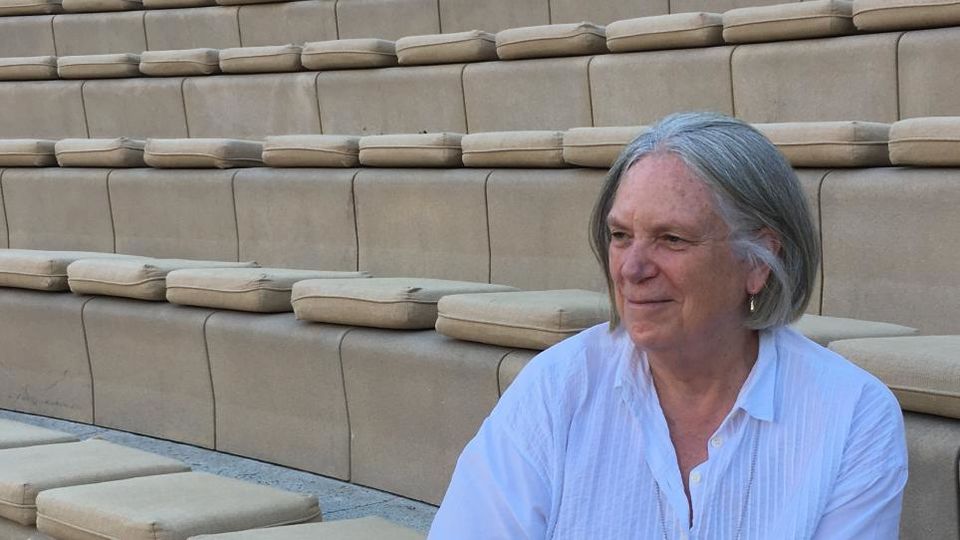Central Hosts The Professor Anne Bogart Leverhulme Conference

From July 18 – 20 2019, Central hosted Professor Anne Bogart for her Leverhulme Conference entitled “Training for the Future: Actor Training and Director Pedagogy for the 21st Century”. The conference concluded Professor Bogart’s year-long Visiting Professorship at Central and considered contemporary actor training since Stanislavsky, interrogating whether the notion of a comprehensive, methodological system still exists.
Examining what it means to train or be trained, the two day conference comprised a series of lectures, workshops and discussions considering the breadth and lineage of contemporary theatre training methodologies.
The conference’s keynote address, “The Vital and Energetic Role of the Audience”, was given by Professor Bogart in her final Leverhulme Lecture as Visiting Professor at Central. Her previous Leverhulme Lectures at Central included: “Transformation Through Training”, “Six Things I Know About Being a Director”, and “Movement Philosophy for the Stage”. The Anne Bogart Leverhulme Lecture Series spoke thematically to a range of interests to theatre makers, academics, students and those involved or interested in the creative process, whether in art, business or daily life.
Following her keynote, Professor Bogart was in conversation with Central’s Head of Acting, Professor Geoffrey Colman, for a discussion on Acting, Directing and Writing.
Across the two days, other discussions included a talk on documenting, reflecting and writing about practice with Jessica Bowles and Dr Diana Damian-Martin, as well as a reflection on the idea of the ensemble with Dr Tom Cornford and Dr Duška Radosavljević. Professor Bogart also led a series of practical training workshops and masterclasses for Central’s postgraduate students.
The conference concluded with a special in conversation between Professor Bogart and the renowned actor and theatre and opera director Fiona Shaw CBE.
Of the conference, Professor Geoffrey Colman said:
“Bogart is one of the most significant international theatre makers working today, she has shaped theatre scholarship and practice for over four decades. The Leverhulme Trust visiting professorship allowed us to encounter her genius and generosity in the room, with the recent conference being the highpoint for what has been an extraordinary residency.”
Over the past forty years, Professor Anne Bogart has developed a reputation as one of the most important and urgent voices working at the intersection of theatre practice and academia; she commands respect as both a scholar and teacher as well as a director internationally, and has been the recipient of major awards including Guggenheim, Doris Duke and Rockefeller Fellowships as well as receiving the Career Achievement Award from ATHE in 1999.
Co-founder of the SITI Company with Tadashi Suzuki in 1992, Professor Bogart was one of the earliest American directors to insist on the importance of working across transnational practices and training. Building her work with SITI as well as through her long teaching career, she has long insisted on the value of training and in-depth research as the basis of the theatre-maker’s art.
Working with Mary Overlie and others at NYU in the early 1980s, Professor Bogart focused on developing a theatre language that emphasizes the compositional aspect of the theatre work and incorporates a series of diverse influences to create an eclectic, unique and vivid postmodern approach to theatre. Viewpoints, which is now synonymous with her name, draws inspiration and bases from key training techniques and diverse sources, including Stanislavsky’s late emphasis on stage action, Overlie’s articulation of Viewpoints for postmodern dance and the work of a number of other contemporary theatre makers, including Robert LePage, Robert Wilson and Meredith Monk.
Professor Anne Bogart is one of the most significant international figures working in the US theatre today, and her work has shaped theatre scholarship for over four decades.
